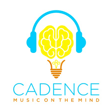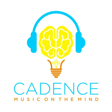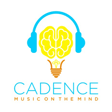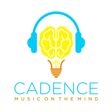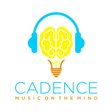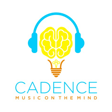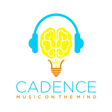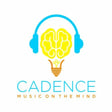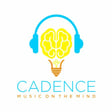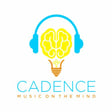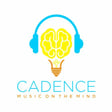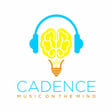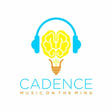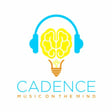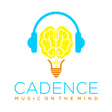Become a Creator today!Start creating today - Share your story with the world!
Start for free
00:00:00
00:00:01

S02 Episode 03: Writing Songs to Learn English
In this episode, we meet Sandra C., a guest at a sanctuary called Rosie's Place for poor and homeless women in Boston. At Rosie's Place, guests are treated with dignity and respect, and given access to resources designed to improve their lives. One of these resources is an English language class done in partnership with the music therapy program at the Berklee College of Music in which music is part of the core curriculum.
Transcript
Introduction to Rosie's Place and student projects
00:00:16
Speaker
Our writing projects and our singing projects are super important right now for our students to feel like their lives matter. Each and every life matters, no matter where you come from, whether you have papers or you don't have papers, whether you work or you don't work, whether you're homeless or you're not homeless, each human being is valuable and precious, and we want their voice to be heard. That's why we do what we do at Rosie's Place.
Can music be medicine?
00:00:49
Speaker
Welcome back to Cadence, the podcast where we explore what music can tell us about the mind. I'm Andrey Viscontes. This season, we're telling the stories of people whose lives have been immeasurably improved by music. And we're asking the question, can music be medicine?
Rosie's Place: A sanctuary for women
00:01:17
Speaker
This episode, we take you into Rosie's Place, a sanctuary for poor and homeless women in Boston. Many of these women are immigrants who fled their home countries in order to build a better life in America. Rosie's Place began in 1974 when the founder noticed women disguising themselves as men in order to get a hot meal at a men's only shelter. We can do better than that, he thought to himself.
00:01:43
Speaker
Now, the services they provide are designed to help women lift themselves out of poverty and give them back their dignity.
00:01:50
Speaker
The staff at Rosie's Place understand that just coming into their sanctuary can feel like an admission of defeat for many of their guests. That first day, that's usually when a woman has hit rock bottom. She can feel like a failure, focusing on her problems and faults. She might be homeless, hungry, jobless, sometimes addicted or otherwise ill.
00:02:13
Speaker
And right from that first moment, the staff worked to turn that around, to reflect back an image of a strong and dignified woman who could make decisions that will get her to where she wants to be. They provide resources and information, along with the message that every woman is a resilient and resourceful individual whose past and present need not limit her.
00:02:35
Speaker
One of the biggest challenges that guests at Rosie's Place face is the language barrier. Because they often come from foreign countries, they've often had little or no English education, so learning the language is a big priority.
Music-infused English classes with Berklee
00:02:49
Speaker
Rosie's Place has partnered with the Music Therapy Department at the Berklee School of Music.
00:02:54
Speaker
In their innovative English classes, music is a powerful part of the lesson plan. Here's Peggy Codding, music therapy professor at Berkeley School of Music. Rosie's Place, as many people know, is very highly regarded
00:03:10
Speaker
shelter for women who are homeless, that's its primary function. It's been in Boston now since the mid-70s and was actually the first shelter for women who are homeless in the United States, so it's long established. And it also is supported by private donations only, so it has no political foundation in the sense of who it
00:03:35
Speaker
has to answer to. And it serves women so well as a result of that. And Berkeley became involved with Rosie's Place a few years ago as a brainstorm of our chair, Dr. Suzanne Hanser at the time, and some of us in the department in music therapy, myself included. And we wanted to bring together
00:04:02
Speaker
some of our students and myself and those at Rosie's, Michelle Chasse and others who are in the program there to see how we could combine teaching music therapists with students who were learning English in the program there, women who were not necessarily homeless, but women who were
00:04:24
Speaker
very much interested in bettering their lives through language learning, learning English, as they were also settling into Boston. And these were women who want to have better jobs, better serve their families, and become centered in the culture in Boston while maintaining their diversity. Wonderful, wonderful people.
00:04:51
Speaker
Why might music be helpful in terms of learning English, particularly for a vulnerable population?
How music enhances English learning
00:04:57
Speaker
I mean, you'd think that it adds a layer of complexity, it speeds up the rate at which the language is spoken. Wouldn't that just make things more complicated and more difficult?
00:05:07
Speaker
It comes down to three things motivation, memory, and social connection. As we talked about in the last episode, music increases levels of dopamine in the brain and general arousal and motivation because dopamine is part of the motivational circuit.
00:05:25
Speaker
It also provides a rich encoding experience for learning new words. I mean who among us didn't learn the alphabet through song? Music makes vocabulary words easier to retrieve. We took words that were being used in context of
00:05:42
Speaker
different topics and went in with our students who had no idea what this had to do with music therapy initially and did songwriting with the students using exactly the words that they gave us and this turned into some kind of wonderful experience of songwriting, language learning, confidence building, personal engagement with each other and we think it's been a great success.
00:06:11
Speaker
The students participate in the class. There are conversations that, first of all, there's a lesson that occurs. So there's a new topic each week that the students who are guests at Rosie's who come in motivated, they've done their lesson in the books that are there and they talk about what they've been learning. And then they also participate in conversation, answering questions that have been asked on paper by the teacher,
00:06:41
Speaker
And so our students participate in that conversation. Interestingly enough, a number of the students who are participating, and it's a small number, it might be two or three, sometimes four of our students, a number of those students are international students themselves. This semester we have a student from Serbia, a student from India. We've had students from all over the world who participate.
00:07:07
Speaker
One of our terrific students who helped run this program for a period of time, Kevin Leon, was from Malaysia. And sometimes we'll have a guest who's in the class who is from the country where our student is from, and we say, all right, everybody has to speak English now during this class. Even though they might speak the same language, the course is English.
00:07:30
Speaker
and then we incorporate the music and the students who have taken the lyrics from the week before that have been written on the board from the previous class about maybe food or about country or about maybe how they got to the country, this country, whatever the experience was from the last week, our students have taken that
00:07:59
Speaker
those lyrics written on the board and turned them into a song, a songwriting activity. And they bring that back this week from last week's lyrics. And everybody learns the song and sings the song and talks about the song. It's really, really beautiful.
Berkeley's songwriting collaboration
00:08:15
Speaker
Every day, every day I go.
00:08:42
Speaker
I also spoke to Sarah Jorgensen, who's the director of the Women's Education Center at Rosie's Place. I asked her about the genesis of this collaboration between the Berkeley School of Music and the sanctuary.
00:08:54
Speaker
We had a group of music therapy students who really wanted to get into the classroom. And we invited them in, taught them how to start conversations with our student about a variety of subjects of interest to our students. And then from there, after about 30 minutes of conversation that was structured, they would have a time of writing the students' words on the board and creating a text that they would use for reading and writing in the class.
00:09:24
Speaker
which incorporates a vocabulary of the day. So the Berkeley students would take that back to their workshops and create a song out of the students' words and bring it back. So we thought that was really a great idea and everyone else did too, including the students.
00:09:42
Speaker
So it was the Berkeley students who were writing the songs and then bringing them back. Did they then teach the songs to the guests? Exactly. They would be involved with our students for a period of about eight weeks. They would bring the song back that's based on the students' words. And the next class, they would teach the song. Exactly.
00:10:02
Speaker
bring instruments, pass out maracas and percussion instruments. They'd have some flutes and recorders and guitars and pianos. Everything they needed to make a beautiful, joyful noise in the classroom. When I was a child, I liked singing.
00:10:26
Speaker
My little horse is friendly His fun is beautiful His fun is beautiful
00:10:44
Speaker
Sarah then introduced me to Sandra See, who was a guest at Rosie's place. The music is so nice first because when they go, it's something different. You feel good. They make many questions about your city, a sample.
00:11:02
Speaker
how you come in to a UNSA. So they say, when students say no, I come in swimming. So they take this word for joking and make a letter for the music. And when we practice many times, we go to another student, another class, and we make a design.
00:11:29
Speaker
They are not the rest of the liking and make it happy and they learn to the music. It's so good. They are young students and they always happy. They look at you and teach and have conversation and they teach to how you say the words and the pronunciation.
00:11:52
Speaker
Everyone who has taken the class has been super excited. I always attend the last day where they perform and they go from class to class and sing their one favorite song. They perform it going around the school and there's just such an excitement. It's like a parade of fun. Everyone comes up to me and just says, this is so much fun. I love
00:12:16
Speaker
I love singing, I love Berkeley, and my English is improving. Pretty much everyone who has tried the class has come out feeling like they've improved their English because they're in a situation where they're talking about what's meaningful to them. And they're able to communicate in a natural way, which is what we want to do, is trying to keep the anxiety level a little bit lower so that people can take a risk and try to speak English.
00:12:46
Speaker
And when it's, I think music really facilitates that, as well as having friends around who want to talk to you, Americans who care to learn about the people in our school who come from all around the world.
00:13:04
Speaker
So one of the challenges of getting people to interact who don't speak the same language is that it's very easy to stereotype someone whom you don't understand and it's often easy for us if we don't speak someone else's language to categorize them as being part of an out group and different and that can create conflict.
00:13:24
Speaker
Do you think that this kind of music songwriting together could ease up some of that conflict and can music be used as a way of resolving conflict by helping people understand each other better?
Music as a universal language
00:13:38
Speaker
I think music just does that.
00:13:41
Speaker
I think music just has always done that. We've used music outside of this course. I think music has always been a way that people have expressed ideas that are taboo, ideas that are from the gut, ideas that are from the soul. I mean, music is the soul. And I think in this class,
00:14:06
Speaker
that, first of all, everybody is working hard at speaking English, but everybody in the class speaks music. Everybody does. And it just
00:14:18
Speaker
Whatever misconceptions or stereotypes people have, they come in and they see the guitars and sometimes the keyboard or whatever and the music starts and you know people start dancing and you know we have we have guests from countries just all over the world and I don't know the barriers if there are any just come down and they just
00:14:45
Speaker
stay down throughout the course and I just I don't know if music is the universal languages as people talk about but it's certainly it's a common language and it's
00:15:01
Speaker
I don't know, I guess you can hear it, you can hear my voice that I do think that we talk about music therapy as, that we use music as the therapy is no accident. It does have something that is pretty important in bringing people together.
00:15:30
Speaker
As an individual who has experienced a traumatic event and then used music to work through it, the experience of these women is probably fairly similar. I imagine they've all experienced some kind of trauma which led to their current situation or even just being homeless is traumatic.
00:15:48
Speaker
Do you think that there is a part of what they're getting that goes beyond just helping them learn English and maybe more towards helping heal them from their traumatic experiences?
00:16:00
Speaker
I think that the women in this group, many of who are no longer homeless but have been at some point perhaps, that one of the issues with working with individuals who have been traumatized is that we don't want to re-traumatize them. And so in this
Healing through music at Rosie's Place
00:16:18
Speaker
particular class, sometimes the music goes deeper than the learning of language and using music to learn language.
00:16:28
Speaker
It sometimes can speak to the trauma. There's one particular song called In My Country that the guests wrote. They wrote the lyrics. And the students through Kevin Leung, who was our graduate assistant, who did such great work there, they put the song to music and then sang it. And when I hear this song,
00:16:54
Speaker
And when I hear it sung by the guests, it seems to take me and also them back to where they've come from because the lyrics are about what the guests have brought from their country and how they got here. And in my mind, I just hear, I don't know if it's longing, but I do hear memory and I do hear story because everybody there has a story, as you know.
00:17:23
Speaker
I live in Puerto Rico. I live in China. I live in Puerto Rico. I live in China. I live a rural place. I feel animal, chicken, cattle, pig or rabbit, dogs and turtles. It's a little vivid.
00:17:52
Speaker
In my country, every music I like Every music is good, every music is good In my house, in my car In my church, in my bed
00:18:28
Speaker
Here's Peggy Codding again. I do hear the story of where people come from and I do hear, I don't know if it's trauma, but it's definitely thinking about place and life and moving on and moving from and moving to.
00:18:46
Speaker
Music allows people to go in a peripheral way into hard places as opposed to going to that place in a very direct way. So instead of the therapist saying to the person who has been traumatized, tell me your story. Tell me where you've been.
00:19:08
Speaker
Sometimes that's too direct and it re-traumatizes. We might sing a song that's similar to something that person might have experienced and they get to say, oh, well, you know, I've been there. I've been to a place like that. And they get to decide how deep we go.
00:19:26
Speaker
And then later we might, that person might give us some lyrics or a word or two and we can flow with that in a song that we write together or then later they write. And so when you talk about the difference between someone who goes into a hospital and sings a song to someone or takes their instrument in and plays,
00:19:49
Speaker
The difference between what a therapist does is that while they're a musician, they're a therapist first. They know how deeply to go into the trauma. They know what the signs are of stress. They know when to start, when to stop, and where to go in terms of the therapy while doing that musically as a musician.
00:20:14
Speaker
It's a combination. And that's what happens in this class. We don't go too deeply into the trauma because we can't, because it's not meant to, we don't want to re-traumatize. But clearly, we can hear where this person has been.
00:20:39
Speaker
One of the ways in which we learn to deal with and heal from traumatic experiences is by separating the facts of the things that happened from the emotions that we felt when they did, so that we can remember the facts, learn from them, and avoid situations in which similar traumatic experiences might happen again.
00:20:58
Speaker
But if strong negative emotions are triggered every time we are reminded of the trauma or we think about it, it's very difficult to heal. In fact, we become afraid of re-remembering, almost like a phobia of having to relive that traumatic memory. That's the essence of post-traumatic stress disorder, when unwanted memories come back again and again, triggering intense emotional responses outside of the person's control.
00:21:25
Speaker
Now one mechanism the brain has to deal with trauma is by dreaming. When we dream, the levels of our fight-on-flight neurotransmitters and activation or emotional centers are at their lowest compared with when we're awake or in other stages of sleep.
00:21:40
Speaker
That lets us process the information of the traumatic event without waking up from a nightmare. In people who suffer from PTSD, the levels of epinephrine or adrenaline are not as low as they are in healthy individuals who are dreaming or who are in the rapid eye movement state during which most dreams happen. So they do wake up in a heightened emotional state.
00:22:02
Speaker
But in healthy people, dreaming can actually be therapeutic, lessening the emotional response to a trigger of the traumatic memory the next day. Maybe music works in a similar fashion. Traumatized individuals can process what's happened to them and maybe even work through some of the emotions without having to relive all the negative experiences.
00:22:24
Speaker
And interestingly enough, sometimes experiencing negative emotions like sadness or nostalgia or even anger can feel good paradoxically when it's paired with music.
00:22:38
Speaker
But after all, music is to some extent artificial. It provides a way for us to have feelings and to think about emotional events while also retaining the power to turn it all off, to disengage from the emotion if it gets too intense. But that's why it's so important to do this kind of work in the presence of a therapist who is trained to pull back if the emotions begin to spiral out of control, just as Peggy described.
Community building through music
00:23:04
Speaker
Music provides a rich encoding experience. There's lots of repetition, but also there are additional cues that a person can use when they want to remember the words that they're learning. The rhythm, the melody, who was with them, and so on.
00:23:27
Speaker
In addition to helping motivate students to learn and remember new vocabulary words based on conversations about things that are important to them, music in the classroom also helps foster a sense of connection between people who are very far from their loved ones and probably feel very alone.
00:23:43
Speaker
We feel more comfortable and we try to always, when we go on other routes, make the same feel what the students, what the teacher teaches you.
00:23:58
Speaker
Yes. So maybe feel if they teach you the different forms because they have time, they take a time and always happy. And the birds and the sun is something about your family, your culture, what do you like it? How you feel here? What do you miss about your family and all about your home?
00:24:27
Speaker
So I think all the runes have a different woman and different history. So one rune is all together. So one music, one song is all what they feel about you and your hair and your feelings.
00:24:45
Speaker
My office is right next door to many of these classrooms where they're creating music and I hear them laughing and moving things. They're moving around the classroom. They're having a wonderful time and we're really excited because it's active learning. You're not sitting in a chair just writing down what's on the board. You're interacting. You're
00:25:08
Speaker
You're getting to know people all around you. You're standing up. Not everybody learns in the same way. And we need to try a variety of modalities to help people learn. And that's what this program really does for us. Since they've brought music in, what have you found in terms of the connections that the guests make between themselves or between them and the teachers? I mean, have you noticed anything from that perspective?
00:25:30
Speaker
I definitely have. I think the teachers, it solidifies some of the teachers to our program more because, let's face it, if they're doing the same teaching style over and over for three or four years, it can get a little dry, I suppose, like anything. So when they get to try the Berkeley program, they're really excited. And we've had teachers who have requested to do it more than once, although we're trying to spread it around so that
00:25:54
Speaker
each teacher gets to try it at least once. It's very popular because it's like a team teaching experience. You have a group of people who are speaking English with all your students, something that we try so hard to get students to do in the community, but it's very difficult to actually do.
00:26:13
Speaker
And so they get all this one-on-one conversation, then they get writing and then they get music and laughter. It's really a perfect learning experience. It builds community in an unusual way. I think there's more of an openness to learning because many of our students who have not attended school before have a concept of what school is, you know, the teachers.
00:26:36
Speaker
is in front of the class standing by the board writing and everybody has their notebook open and you're just copying what he or she says on into your notebook. Many of our students come from that paradigm so we're always trying to throw in new ways of learning since we know that
00:26:51
Speaker
people learn in a variety of ways. And so this musical and interactive way has at first had a little bit of resistance, but once people tried it and the laughter let loose, people were on board. Now they don't want to go back, I think. I asked Peggy, since she's a music therapist, how she measures the success of a program like the one at Rosie's Place. Are there any measurable outcomes?
00:27:21
Speaker
This has been a new experience in the sense of there hasn't been much that I know of in terms of using music therapists to teach language in this way. So it's all a very new protocol for music therapists. But observable, measurable, some of that's been very behavioral in terms of the interactions between guests within the classroom, the changes in
00:27:50
Speaker
Verbal interactions have definitely increased in terms of the nonverbal expression, the use of music, the sharing of music between guests, the number of words, and how quickly people are learning those words in context. That all has increased within the guests.
00:28:12
Speaker
In our students from Berkeley, their songwriting skills and the speed of their ability and their creativity I think has increased. They are becoming much more comfortable in talking with individuals who they don't know. Some of them, you know, certainly older than they are and that's sometimes challenging for them.
00:28:33
Speaker
And at the end of the class, when the course is over, all the songs that the students have worked with, with the guests' information, the guests record, we record those, the students, our students record those, and often add
00:28:52
Speaker
tracks beats some more to the song and then the students will often go from class to class with a favorite and sing those in the other language classes and so it really has helped with motivation and I think self-concept and all of those I think add to quality of life.
00:29:15
Speaker
Spring, summer, fall, winter
00:29:41
Speaker
So the last thing I wanted to ask a little bit about are some of the challenges of working with individuals, you know, women who are very poor and who may be homeless. What are some of the difficulties and how does Rosie's place work to overcome them?
00:29:56
Speaker
Well, a good number of our folks have endured trauma or have been victimized by an abusive relationship. So many of our students come with a variety of trauma, and we at Rosie's Place just let people say what they want and dictate how, if you want to call it treatment,
00:30:22
Speaker
dictate how their life will go. They choose what they want to do and we honor their choices. So if someone wants to sit in the sitting room for the day and just be quiet, they can do that. If they want to take a class, they can go do that. If they want to work with an advocate on their next steps for housing or treatment of some kind, they can do that. So we just tend to honor people's choices and remember that if you haven't walked in someone's shoes,
00:30:51
Speaker
You may not know what they need yourself. So we put aside all of our judgments and just try to give choices to people. We meet them where they're at. And that seems to be one of the powerful things about writing songs like this, because people sometimes, I think, tend to be more willing to open up emotionally when it's in the cause of making music compared to, you know, just in conversation. Is that a sort of
00:31:18
Speaker
side benefit of the music program? Absolutely.
Music's impact on students' sense of value
00:31:23
Speaker
I think that music opens up, opens people up to the heart, a place where you just can't really, sometimes the heart, hearts are closed because of trauma. So yes, it definitely opens people up and like nothing else that I've seen, especially in the, in light of the politics of America right now, which there's anti-immigrant sentiment sort of
00:31:48
Speaker
permeating here and there too much. And so our writing projects and our singing projects are super important right now for our students to feel like their lives matter. Each and every life matters, no matter where you come from, whether you have papers or you don't have papers, whether you work or you don't work, whether you're homeless or you're not homeless, each human being is valuable and precious.
00:32:16
Speaker
And we want their voice to be heard. That's why we do what we do at Rosie's Place. We are one. All the word is one, one person. And our feelings and whenever you stay, you always feel the music. You always, the music is similar how you feel in your home, how you feel in the moment.
00:32:47
Speaker
Thank you for listening to this episode of Cadence.
Podcast credits and contact information
00:32:50
Speaker
You can find us online at the ensembleproject.com slash cadence at facebook slash cadence podcast and on twitter at cadence podcast. You can also get in touch with us at cadencemind at gmail.com and you can support us at patreon.com slash cadence podcast.
00:33:07
Speaker
Since we're a relatively new podcast, we would also love for you to go to iTunes or wherever you get your podcasts and leave us a review. Cadence is produced by Adam Isaac and me, Andre Viscontis. I also created and write the show. The music in this episode was provided for us by the Berklee music students, as well as acclaimed New Zealand composer, Rian Sheehan. Check him out at riansheehan.com.
00:33:30
Speaker
You can find me on Twitter at Andre Viss. Additional production help from Scott Lowry. Cadence is generously supported by the Germanicos Foundation. Join us in two weeks for our next episode in which we continue our exploration of what music can tell us about the mind.
